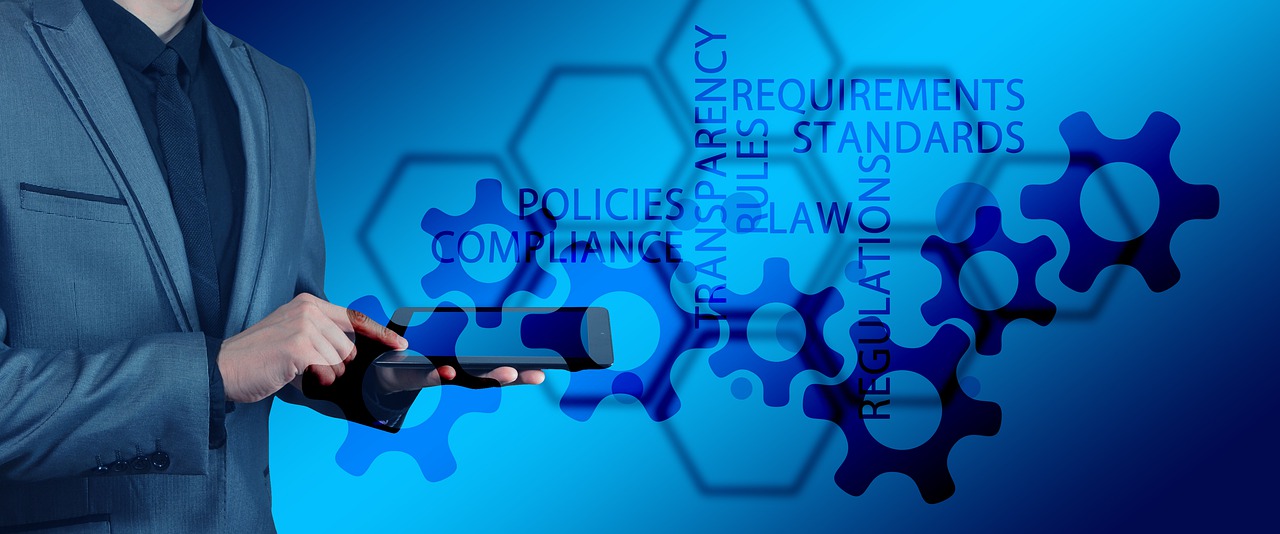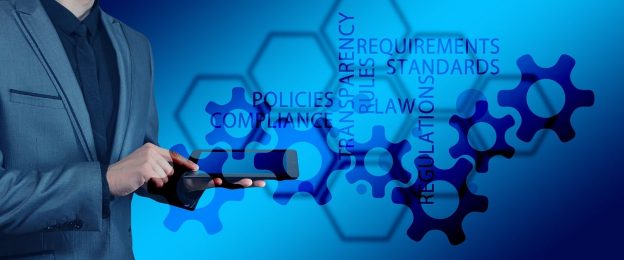Are you a business owner or a corporate executive looking to ensure that your company is compliant with HR regulations? Look no further than HR compliance training programs. These programs are designed to provide comprehensive and up-to-date knowledge on employment laws and regulations, including topics such as workplace discrimination, sexual harassment prevention, and employee safety. By enrolling your employees in these training programs, you can minimize the risk of legal disputes, protect your company’s reputation, and foster a safe and inclusive work environment. In this article, we will delve into the importance of HR compliance training programs and how they can benefit your organization.

What is HR Compliance?
Definition of HR compliance
HR compliance refers to the adherence to laws, regulations, and policies related to human resources practices within an organization. It involves ensuring that employees and management follow the necessary guidelines concerning various HR aspects, such as employment laws, workplace safety, and data privacy. HR compliance aims to mitigate legal risks, protect employees’ rights, and maintain a harmonious work environment.
Importance of HR compliance
HR compliance is crucial for businesses as it helps them navigate the complex legal landscape and avoid potential legal issues. By adhering to HR laws and regulations, organizations can protect themselves from penalties, fines, and lawsuits. It also promotes ethical practices, fosters a positive workplace culture, and supports employees’ well-being. Furthermore, HR compliance builds trust among stakeholders, enhances the company’s reputation, and contributes to overall business success.
Role of HR compliance in businesses
HR compliance plays a vital role in businesses by providing guidance and structure for HR processes. It ensures that organizations operate within legal boundaries while effectively managing their workforce. By maintaining compliance, businesses can attract and retain talented employees, minimize legal risks, and maintain a positive image. HR compliance also aids in establishing fair policies, addressing employee concerns, and creating a safe and inclusive work environment.
Types of HR Compliance Training Programs
General HR compliance training
General HR compliance training provides employees and management with an overview of the key HR laws, regulations, and policies that apply to their organization. It covers topics such as equal employment opportunity, wage and hour laws, workplace safety, and anti-discrimination practices. This training aims to ensure that all individuals within the organization have a clear understanding of their rights and responsibilities related to HR compliance.
Diversity and inclusion training
Diversity and inclusion training focuses on creating an inclusive work environment that respects and values individual differences. It educates employees on the importance of diversity, equity, and inclusion, and provides strategies for eliminating biases and promoting equal opportunities. This training helps organizations build diverse teams, foster innovation, and improve overall workplace culture.
Harassment prevention training
Harassment prevention training is designed to educate employees on recognizing and preventing workplace harassment. It familiarizes employees with different forms of harassment, such as sexual harassment, racial harassment, or bullying, and explains the procedures to report and address such incidents. This training promotes a safe and respectful work environment and reduces the risk of harassment-related lawsuits.
Ethics and conduct training
Ethics and conduct training focuses on promoting ethical behavior and professionalism in the workplace. It provides employees with guidelines on ethical decision-making, maintaining confidentiality, and handling conflicts of interest. This training ensures that employees understand and adhere to the organization’s code of conduct, promoting a culture of integrity and responsible business practices.
Data privacy and security training
Data privacy and security training is essential in the digital age to protect sensitive information and comply with data privacy laws. It educates employees on data protection measures, secure handling of personal information, and the consequences of data breaches. This training helps organizations safeguard customer and employee data, avoid regulatory penalties, and maintain trust with stakeholders.
Benefits of HR Compliance Training
Legal protection for businesses
Implementing HR compliance training programs provides legal protection for businesses by ensuring that employees and management are aware of and comply with relevant laws and regulations. This minimizes the risk of legal disputes, penalties, and fines. Training programs also demonstrate the organization’s commitment to following the law, which can be crucial in defending against potential legal claims.
Improved employee morale and productivity
HR compliance training fosters a positive work environment by promoting a culture of fairness, inclusivity, and respect. When employees feel that their rights are protected and that they work in a safe and inclusive environment, their morale and job satisfaction increase. This, in turn, leads to improved productivity, engagement, and retention rates.
Reduction in workplace incidents and lawsuits
By providing comprehensive HR compliance training, organizations can effectively mitigate workplace incidents related to harassment, discrimination, or safety violations. Employees who are well-informed about their rights and responsibilities are more likely to act in accordance with the law, minimizing the risk of incidents and subsequent lawsuits. This proactive approach reduces legal costs and reputational damage.
Enhanced company reputation
Organizations that prioritize HR compliance are perceived as ethical, responsible, and trustworthy by their stakeholders. This positive reputation attracts top talent, fosters customer loyalty, and enhances business relationships. HR compliance training programs showcase the organization’s commitment to legal and ethical standards, which can positively impact its brand image and market position.
Lower turnover and recruitment costs
Implementing HR compliance training programs helps create a positive work environment where employees feel valued and respected. This, in turn, leads to higher employee satisfaction, increased loyalty, and reduced turnover rates. When organizations retain their talented employees, they save on recruitment and training costs associated with frequent turnover.
Key Components of Effective HR Compliance Training
Clear policies and procedures
Effective HR compliance training starts with the establishment of clear and comprehensive policies and procedures. These policies should outline legal requirements, expectations, and consequences for non-compliance. By providing employees with easily accessible guidelines, organizations ensure a common understanding of compliance standards.
Comprehensive training materials and resources
Training materials and resources should cover the essential topics related to HR compliance and be regularly updated to reflect new laws and regulations. These resources may include handbooks, presentations, videos, and online modules. Accessible and well-structured training materials help employees grasp the information effectively, ensuring their engagement and understanding.
Engaging and interactive training methods
To maximize the effectiveness of HR compliance training, interactive methods should be employed. This can include group discussions, case studies, role-playing, and simulations. By encouraging active participation and engagement, organizations create a more memorable and impactful learning experience for their employees.
Regular and ongoing training sessions
HR compliance training should not be a one-time event but rather an ongoing process. Regular updates and refresher courses help to reinforce knowledge and keep employees informed about changes in laws and regulations. By offering continuous training, organizations ensure that employees stay up-to-date on compliance requirements.
Assessment and evaluation measures
To measure the effectiveness of HR compliance training programs, assessments and evaluations should be conducted. These may include quizzes, tests, or surveys to assess employees’ understanding of the training content. Feedback from participants can also help identify areas for improvement and ensure that the training is meeting the organization’s objectives.

Implementing HR Compliance Training Programs
Identification of training needs
Before implementing HR compliance training programs, organizations should assess their specific training needs. This involves identifying areas of high risk, legal requirements, and gaps in employee knowledge. By understanding the training needs, organizations can tailor their programs to address the most critical compliance issues.
Development of training curriculum
Once the training needs are identified, organizations can develop a comprehensive training curriculum. This includes determining the topics to be covered, structuring the content, and selecting appropriate training methods. The curriculum should align with the organization’s specific industry, legal obligations, and workforce demographics.
Selection of training methods and tools
Choosing the right training methods and tools is essential for effective HR compliance training. The selection process should consider factors such as the organization’s size, budget, and workforce distribution. Training methods may include in-person training sessions, online courses, e-learning platforms, or a combination of different approaches.
Scheduling and delivery of training sessions
Organizations need to establish a clear schedule for delivering HR compliance training sessions. This includes determining the frequency, duration, and timing of the sessions. Training sessions can be conducted in-person or virtually, depending on the organization’s resources and the needs of the workforce.
Tracking and monitoring training progress
To ensure the effectiveness of HR compliance training programs, organizations should implement a system for tracking and monitoring employees’ training progress. This can be done through learning management systems, attendance tracking, or training completion certificates. Regular monitoring helps identify employees who may require additional support or reinforcement.
Legal Requirements for HR Compliance Training
Federal laws and regulations
At the federal level, various laws and regulations govern HR compliance. These include the Civil Rights Act, the Americans with Disabilities Act, the Fair Labor Standards Act, and the Occupational Safety and Health Act. Organizations must ensure that their HR compliance training covers these federal requirements to avoid legal penalties.
State and local laws
In addition to federal laws, organizations must also comply with state and local regulations regarding HR practices. These may include minimum wage laws, paid leave policies, and anti-discrimination laws specific to the state or municipality where the business operates. HR compliance training should incorporate relevant state and local requirements to ensure full compliance.
Industry-specific regulations
Certain industries, such as healthcare or finance, have specific HR compliance regulations that organizations must adhere to. For example, the Health Insurance Portability and Accountability Act (HIPAA) sets standards for the protection of confidential health information. Training programs in these industries should address the industry-specific regulations to avoid costly violations.
Mandatory training topics
Some jurisdictions require organizations to provide specific HR compliance training programs. For instance, sexual harassment prevention training is mandatory in several states, including California and New York. Organizations should familiarize themselves with the mandatory training topics in their jurisdiction and ensure compliance through appropriate training programs.
Record-keeping and documentation
Organizations are often required to maintain records and documentation of HR compliance training. This may include training attendance records, completion certificates, and training material revisions. Proper record-keeping ensures transparency, facilitates audits, and serves as evidence of compliance in case of legal disputes or regulatory inquiries.
Common Challenges in HR Compliance Training
Resistance and lack of engagement from employees
One common challenge in HR compliance training is resistance from employees who perceive it as tedious or irrelevant. To overcome this challenge, organizations should emphasize the importance of compliance training, link it to individual and organizational success, and ensure that the training is engaging and interactive.
Limited resources and budget constraints
Organizations with limited resources may struggle to allocate sufficient funds and time for HR compliance training. To address this challenge, organizations can explore cost-effective training options, such as online courses or partnering with external training providers. Efficient use of resources and prioritization of training needs can also help overcome budget constraints.
Keeping up with changing regulations
HR laws and regulations are constantly evolving, making it challenging for organizations to stay current with compliance requirements. To overcome this challenge, continuous monitoring of regulatory changes and updates is essential. Organizations can also seek assistance from legal experts or HR consultants to ensure their training programs remain up-to-date.
Training remote or geographically dispersed workforce
Organizations with remote or geographically dispersed employees face the challenge of delivering consistent HR compliance training. This can be addressed by using virtual training platforms, webinars, or e-learning modules to reach employees regardless of their location. Regular communication and feedback channels should also be established to address any questions or concerns.
Language and cultural barriers
In multicultural organizations, language and cultural barriers may pose challenges in HR compliance training. To overcome this, training materials should be available in multiple languages, and trainers or facilitators should acknowledge and respect cultural differences. Providing opportunities for open dialogue and clarification can help address any misunderstandings or misconceptions.
Best Practices for HR Compliance Training
Tailoring training programs to business needs
To ensure the effectiveness of HR compliance training, organizations should customize their programs to align with their specific business needs and industry requirements. Training should address the organization’s unique challenges, policies, and compliance obligations, providing relevant and practical guidance to employees.
Providing regular updates and refresher courses
As HR laws and regulations evolve, it is essential to provide regular updates and refresher courses to employees. This helps reinforce the knowledge gained from previous training sessions and ensures that employees are aware of any changes in compliance requirements. Regular training updates help maintain a culture of compliance within the organization.
Involving senior management and leadership
To promote a culture of compliance, senior management and leadership should actively participate in HR compliance training programs. Their involvement demonstrates the organization’s commitment to compliance and sets the tone for ethical behavior throughout the organization. Senior management should lead by example and reinforce the importance of compliance in all aspects of the business.
Encouraging employee feedback and participation
Employee feedback and participation are invaluable in enhancing the effectiveness of HR compliance training. Organizations should create channels for employees to provide feedback on the training programs, suggest improvements, and report any compliance concerns. Employees should be actively involved in shaping the training content to ensure its relevance and applicability.
Monitoring and measuring training effectiveness
To assess the effectiveness of HR compliance training programs, organizations should establish metrics and evaluation methods. This can include tracking completion rates, evaluating knowledge retention through assessments, and gathering feedback from participants. By monitoring and measuring training effectiveness, organizations can identify areas for improvement and continuously enhance their compliance programs.

Selecting an HR Compliance Training Provider
Experience and expertise in HR compliance
When choosing an HR compliance training provider, organizations should consider the provider’s experience and expertise in the field. The provider should have comprehensive knowledge of HR laws and regulations, along with a track record of delivering effective training programs. Experience in the specific industry or business sector is also beneficial.
Reputation and client reviews
Researching the reputation and client reviews of HR compliance training providers can help organizations make informed decisions. Positive reviews and testimonials from other businesses indicate the provider’s reliability and effectiveness. Organizations can also seek recommendations from industry associations or professional networks.
Customized training programs
A good HR compliance training provider should offer customized programs that cater to the organization’s specific needs. They should understand the organization’s industry, compliance obligations, and workforce demographics to tailor the training content and delivery methods accordingly. Customized programs ensure that the training is relevant and practical for the organization’s employees.
Accessible and user-friendly training platforms
The HR compliance training provider should offer accessible and user-friendly training platforms, particularly for online or remote training sessions. The platforms should be intuitive and easily navigable, allowing employees to engage with the training content effectively. Compatibility with various devices and operating systems is also important for seamless training delivery.
Compliance support and resources
In addition to training programs, an HR compliance training provider should offer ongoing support and resources to organizations. This may include access to updated compliance materials, guidance on policy development, and consultation services. Providers that offer comprehensive support can assist organizations in maintaining compliance beyond the training sessions.
FAQs about HR Compliance Training Programs
What is the legal requirement for HR compliance training?
The legal requirements for HR compliance training vary depending on federal, state, and local laws. Some jurisdictions have specific training topics that organizations must cover, such as sexual harassment prevention training. It is essential for organizations to familiarize themselves with the specific requirements in their jurisdiction to ensure compliance.
How often should HR compliance training be conducted?
The frequency of HR compliance training often depends on factors such as industry, regulatory changes, and workforce dynamics. In general, organizations should provide initial training to new employees and conduct regular refresher courses to update employees on any changes in laws or regulations. Ongoing training should be provided annually or as needed to maintain compliance.
Can HR compliance training be conducted online?
Yes, HR compliance training can be conducted online through e-learning platforms, webinars, or virtual training sessions. Online training offers flexibility and accessibility, particularly for organizations with remote or geographically dispersed employees. However, it is important to ensure that online training programs meet regulatory requirements and are effectively delivered and monitored.
What are the consequences of non-compliance?
Non-compliance with HR laws and regulations can have severe consequences for businesses. It may result in legal penalties, fines, lawsuits, or damage to the organization’s reputation. Non-compliance can also lead to employee dissatisfaction, higher turnover rates, and difficulties attracting top talent. By prioritizing HR compliance training, organizations can mitigate these risks.
How can HR compliance training benefit my business?
HR compliance training offers several benefits for businesses. It provides legal protection by ensuring proper adherence to HR laws and regulations, minimizing the risk of costly legal disputes. Compliance training also improves employee morale, productivity, and reduces workplace incidents. Additionally, it enhances the company’s reputation, lowers turnover rates, and attracts top talent, contributing to long-term business success.
